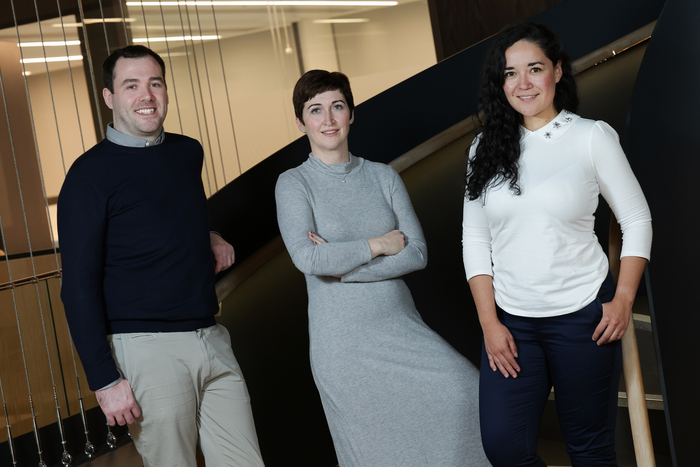DUBLIN, Ireland, 5 December, 2022: Research by RCSI University of Medicine and Health Sciences has provided new insights into the mechanism behind how our circadian 24-hour body clock influences our immune response to vaccines, depending on the time of day.

Credit: Maxwell Photography
DUBLIN, Ireland, 5 December, 2022: Research by RCSI University of Medicine and Health Sciences has provided new insights into the mechanism behind how our circadian 24-hour body clock influences our immune response to vaccines, depending on the time of day.
The paper published in Nature Communications examined the changes taking place in the mitochondria of a key immune cell involved in the vaccine response and could help improve the design and timing of administration of future vaccines to maximise effectiveness.
It had been previously found that humans mount a greater response to certain vaccines depending on the time of day at which the vaccine is administered, however the reason behind this wasn’t clearly understood. This research has uncovered that our circadian clock is changing the shape of mitochondria within dendritic cells. The variations in the structure of mitochondria influence how well dendritic cells function throughout the day.
Research author Professor Annie Curtis, School of Pharmacy and Biomolecular Sciences at RCSI said: “Our discovery has shed light on a crucial aspect of our body’s response to vaccination and highlights the importance of circadian rhythms in immunity. We can apply this understanding in vaccine development to ensure we receive the maximum benefits from vaccination.”
The circadian clock within dendritic cells is controlling whether mitochondria form one of two shapes either long strings, ‘networked’, or broken into small punctate pieces. It is within the networked formation that vaccination is most effective as dendritic cells have a better ability break up the vaccine into small pieces for interaction with our immune cells (T cells). Within the study, researchers used an approach to induce the networked phase which could have implications in vaccine design allowing us to optimise our immune response, irrespective of time of day.
The majority of this study was supported through funding provided by the Science Foundation Ireland Career Development Award (CDA) programme by the Irish Research Council through a Laureate Award and an RCSI Strategic Academic Recruitment Program (StAR) award. Further support was provided by a Conacyt grant, a SFI Investigator Award and a European Research Council Consolidator Award.
ENDS
For further information:
Laura Anderson, Communications Officer, RCSI
+353 87 199 0399/ [email protected]
About RCSI University of Medicine and Health Sciences
RCSI University of Medicine and Health Sciences is a world-leading university for Good Health and Well-being. Ranked in the world top 50 for its contribution to UN Sustainable Development Goal 3 in the Times Higher Education Impact Rankings 2022, it is exclusively focused on education and research to drive improvements in human health worldwide.
RCSI is an international not-for-profit university, headquartered in Dublin. It is among the top 250 universities worldwide in the World University Rankings (2023). RCSI has been awarded Athena Swan Bronze accreditation for positive gender practice in higher education.
Visit the RCSI MyHealth Expert Directory to find the details of our experts across a range of healthcare issues and concerns. Recognising their responsibility to share their knowledge and discoveries to empower people with information that leads them to better health, these clinicians and researchers are willing to engage with the media in their area of expertise.
www.rcsi.com
Journal
Nature Communications
DOI
10.1038/s41467-022-34897-z
Article Title
The circadian clock influences T cell responses to vaccination by regulating dendritic cell antigen processing
Article Publication Date
5-Dec-2022




